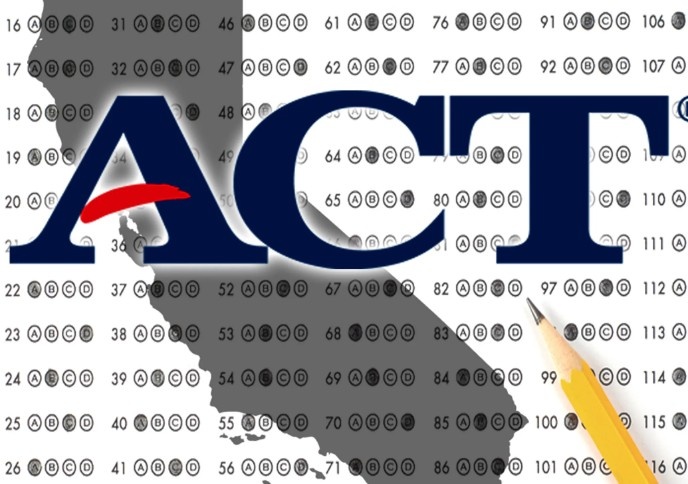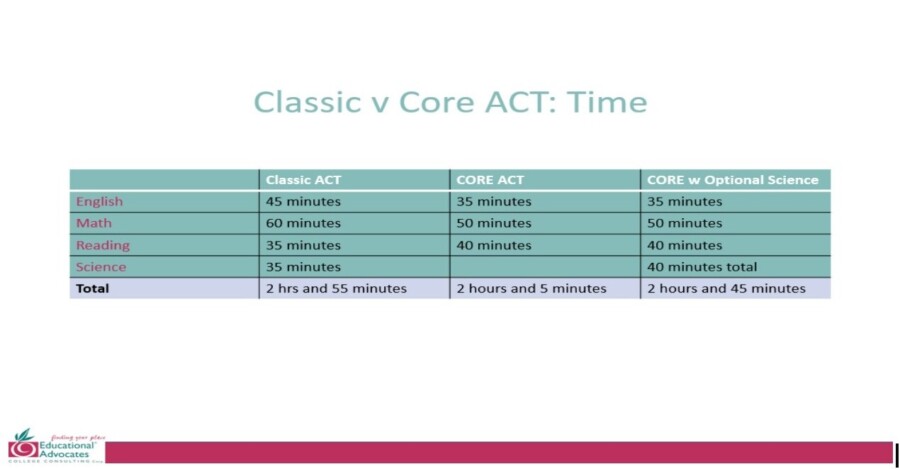College Admissions Tips and Guidance
ACT Changes: What Juniors Should Know About Testing in 2025

Explore Our Articles
Recent Posts
Popular Categories
Get In Touch
On Social
By Phone or Text
(617) 734-3700
By Mail or Email
1678 Beacon Street
Brookline, MA 02445
By Form
Educational Advocates
Our objective is to guide the family in finding options where the student will not only get admitted, but thrive and find success once on campus.
ACT Changes: What Juniors Should Know About Testing in 2025
Consider this scenario: James, a high school junior, has been planning to take the ACT this spring. His friends are also preparing for the SAT, but James feels the ACT suits his strengths better—especially since he’s comfortable with its longer format and finds the science section an area where he can excel.
However, during a meeting with his school counselor, James learns that the ACT will introduce a new “Core” version starting in April 2025. He’s confused: What’s different about this new version? Should he stick with the ACT, or would it make more sense to switch to the SAT? To make matters more complicated, James discovers that there are few practice tests for the new ACT Core, leaving him unsure of how to prepare.
What can James—and other high school juniors—learn about navigating these changes to the ACT and standardized testing in general?
Understanding the Role of Standardized Tests
Before the pandemic, most colleges required students to submit test scores. However, in 2020, many schools adopted test-optional (TO) policies, meaning students could choose whether or not to include test scores in their applications. This trend has persisted, with some schools even becoming test-free, where test scores aren’t considered at all.
Now, however, many selective colleges are leaning back toward test submissions. Some schools that remain test-optional, like Rice University, have hinted that they prefer to see scores if they’re strong. This means students applying to more selective colleges might be better off taking a standardized test and trying to score in the middle 50 percent range of the colleges they are targeting.
Key Changes to the ACT
If you’re considering the ACT, you need to know about its upcoming transition to the “Core” format. Here’s what’s changing:
- Timing and Sections: The Core ACT (not including science) will be 50 minutes shorter and have 44 fewer questions. The science section, in particular, will become optional and scored separately. The total test time will be 2 hours and 5 minutes for the CORE alone and 2 hours and 45 minutes for the CORE plus the science section.
- No Adaptive Testing: Unlike the SAT, which changes questions based on your performance, the ACT Core will not adapt.
- Digital Testing: The Core ACT will primarily be on computers, but some schools may still offer a paper version. Students cannot bring their own devices, which could create logistical challenges for schools. Stay tuned to see how ACT responds to these challenges.
- Practice Limitations: Practice tests for the Core ACT won’t be available until spring 2025, making it harder for students to prepare in advance.
For students like James, these changes may feel overwhelming, especially if they plan to take the test after the new version launches in April 2025.

How Should You Plan Your Testing Strategy?
The good news is that the Classic ACT will remain available through July 2025 for national testing and October 2025 for school-day testing. However, juniors should think carefully about their options. Here’s some advice:
- Take the Classic ACT if You Can: The Classic version is a better option if you plan to test before the summer of 2025. It’s familiar, and there are plenty of resources to help you prepare.
- Consider the SAT: If you’ll be testing after mid-2025, the SAT might be a safer choice. Its digital format is already established, and the adaptive style may suit some students better.
- Pick the Test That Fits You Best: If you’re unsure whether the ACT or SAT is right for you, take practice tests for both. Look for the test that feels more comfortable and aligns with your strengths. Then, focus your preparation on that exam.
- Plan for the Science Section: If you decide to take the new Core ACT, opt to include the science section. While it’s optional, most colleges haven’t decided how to handle scores from the new format. Including it keeps your options open. If you opt to take it, colleges will see your science score though it will not be factored into your composite score.
Lessons Learned
For students like James, navigating these changes requires careful planning and flexibility. Here’s what you should take away:
- Stay Informed: Testing policies and formats are always evolving, so keep up with updates from the ACT and SAT.
- Start Early: Don’t wait until the last minute to decide which test to take. Give yourself time to practice and adjust your strategy if needed.
- Focus on Preparation: Whichever test you choose, consistent practice is key. Use full-length tests to build stamina, and consider working with a tutor for targeted help.
Standardized tests are just one part of your college application, but strong scores can open doors to more opportunities. By staying organized and informed, you can navigate these changes and set yourself up for success.
Learn more about how we guide students in their college and standardized testing experience by scheduling an introductory interview with a college admission consultant.









